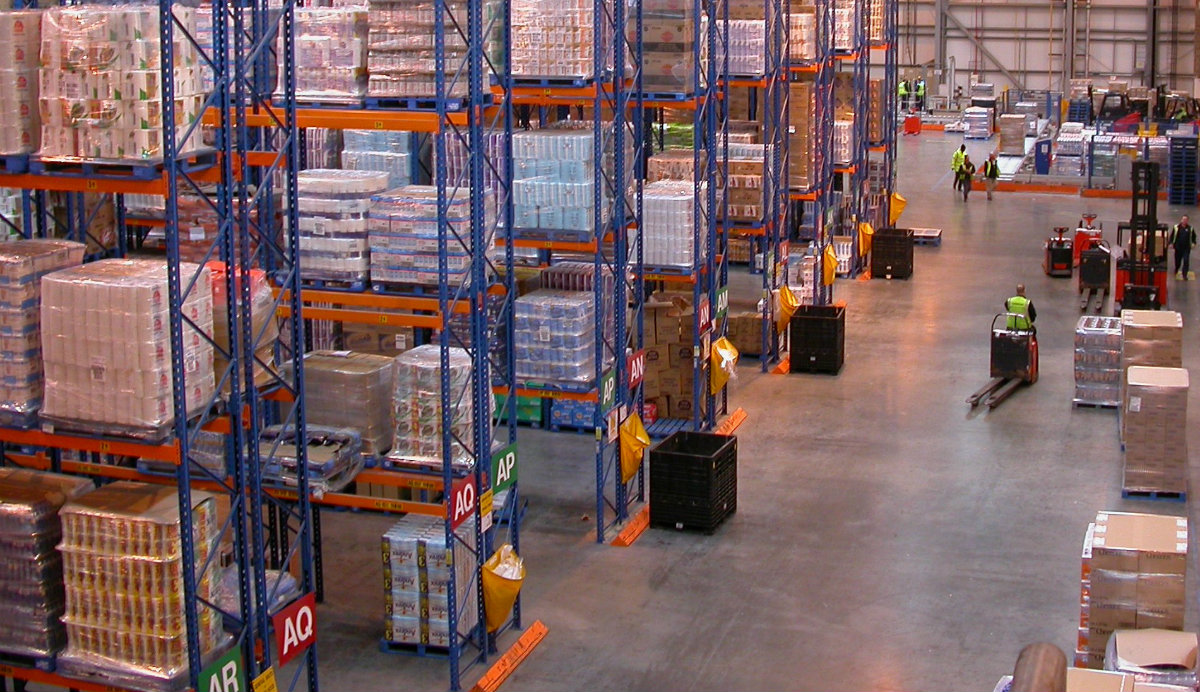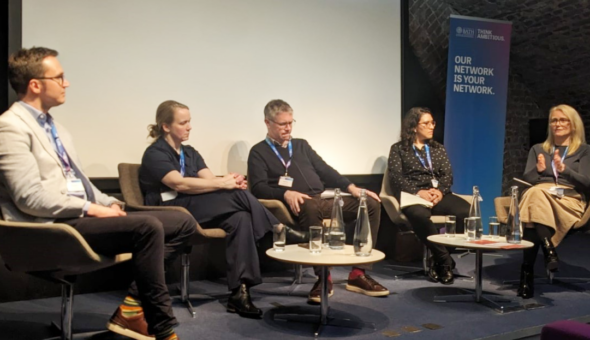UK-based companies are ramping up efforts to combat slavery in their overseas supply chains. But according to Andrew Crane and Genevieve LeBaron, companies also need to be working harder to address the severe labour exploitation taking place at home.
The passage of the UK 2015 Modern Slavery Act has prompted companies to be more open about their efforts to combat forced labour in global supply chains. To date, hundreds of companies have published modern slavery statements as required by the Act. These statements depict the problem of forced labour as a hidden and illegal practice that is seeping into complex overseas supply chains, in spite of companies’ extensive efforts to protect human rights. Companies describe their efforts to prevent and address forced labour and human trafficking through the use of ethical auditing, certification schemes, supplier codes of conduct, awareness-raising and the installation of responsible sourcing managers. This is centred on vulnerable and faraway workers, such as in the Thai fishing industry or the Bangladeshi garments sector.
There is without doubt value in company efforts to combat forced labour in supply chains operating in countries where national regulatory enforcement of labour standards is weak. Seldom acknowledged, however, is the fact that the problem is not exclusive to developing countries in the global south, but is also prevalent in developed countries in the north, including the UK.
As we document in our research published in the journal Regulation & Governance, regulatory and enforcement gaps surround the use of forced labour in global supply chains as well as supply chains located within UK borders. Problems such as the weak enforcement of labour law, poor oversight over labour providers and limited transparency in labour supply chains – combined with immigration laws that render migrant workers vulnerable to forced labour – mean that forced labour continues to thrive in UK-based industries.
Many companies source from domestic supply chains in which forced labour is known to be a problem. These include the food, construction, garment and household goods industries, as well as those linked to services such as car washes and cleaning. Yet, companies reporting on their anti-slavery efforts rarely mention these UK-based supply chains or their vulnerable workforces, choosing instead to focus on workers in their sourcing networks overseas – instead of the presumably easier option of fighting forced labour at home.
This blind spot may stem from the assumption that the UK government is already handling the problem of forced labour within its borders, so companies do not need to. However, as highlighted in our research, design flaws in public regulatory initiatives and poor enforcement mean that regulatory gaps frequently referred to as ‘decent work deficits’ in the developing world could also occur in the UK.
The risk of forced labour in UK supply chains was acknowledged by department store chain John Lewis in its 2016-2017 Human Rights and Modern Slavery Report, following the high-profile 2016 conviction of one of its UK bed suppliers Kozee Sleep for exploiting a ‘slave workforce’ to make beds sold in John Lewis stores. The company report notes that UK workers are at risk of slavery, due to “informal recruitment in seasonal supply chains” and the “lack of scrutiny of labour providers”. However, it is not clear how exactly the company plans to address these risks.
The Kozee Sleep case also underscores the shortcomings of company initiatives to monitor labour and social standards. According to several newspaper reports, Kozee Sleep passed an ‘ethical’ audit just weeks before it got busted for forced labour. As The Independent reported, “ethical audits by a series of firms including John Lewis, Next, and Dunelm Mill failed to spot their supplier was employing foreign workers for less than £2 a day”. If ethical audits cannot detect forced labour in the UK, how effective are these tools abroad, where audit cheating and corruption are documented to be widespread?
Although the reports provide some detail about the initiatives that companies are taking to prevent and address forced labour, they very seldom report on theeffectiveness of those efforts. For instance, when problems like the Kozee Sleep case are acknowledged, companies often respond by making vague references to training programs to help suppliers and service providers share good practice, or to generic ethical auditing programs. For instance, Tesco’s modern slavery statement describes the requirement for all of its UK suppliers to attend a one-day training on modern slavery that “offers a support network where challenges and good practice can be shared among peers and experts”. While this may be a valuable initiative, the company does not report on how effective this program is in actually addressing the pattern of forced labour that has by now been well-documented in UK agricultural supply chains. This makes it difficult to assess whether or not progress is being made.
Big business has a long way to go if it is serious about reducing its reliance on forced labour in the developing world. But the governance gaps surrounding forced labour in global supply chains are not the only ones to persist in the wake of the Modern Slavery Act’s passage. Companies looking to fight forced labour should start with their domestic supply chains, where they have high visibility, traceability and control as well as strong state resources that they could mobilise, if they really wanted to.
This article was originally published under a Creative Commons Licence by Beyond Trafficking and Slavery on the Open Democracy website. Beyond Trafficking and Slavery seeks to help those trying to understand forced labour, trafficking and slavery by combining the rigour of academic scholarship with the clarity of journalism.
A more extensive version of this piece was recently published in the academic journal Regulation and Governance. For download options, please see the Wiley Online Library.
Image by Nick Saltmarsh
Respond



